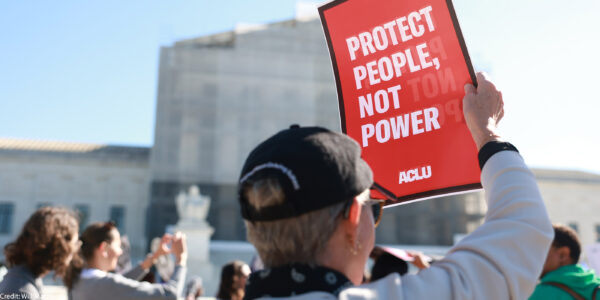Permission to Work: The Government Database That May Stand Between You and Your Next Job
The government database is called E-Verify. Its job is simply stated: make a list of everyone who is eligible to work. The theory is this will prevent undocumented workers from getting jobs and end our immigration problems.
There are only 150 million U.S. workers; how hard could it be to make an accurate list of every single one of them? As numerous government reports have found over the years, pretty hard (PDF). And the results have been devastating. U.S. workers excited to start a new job are instead thrust into bureaucratic limbo as they try to sort out government mistakes. Their new employers hire, then fire them and never tell them why; or worse, they might never be hired in the first place and not know why.
We hope this is the lesson that Congress absorbs today as the House Judiciary Committee conducts a hearing on the E-Verify program. Currently the program is voluntary for employers, but numerous legislative proposals are circulating to make it mandatory. The idea is enormously appealing in its simplicity – everyone loves technological solutions to hard problems – but E-Verify gets less attractive the more you dig.
According to government reports, the program (even after years of work) has a stubbornly high error rate and well-documented problems in attempts to resolve those errors. According to the most conservative numbers, at least 80,000 American workers lost a new job last year because of a mistake in the system. If E-Verify were mandatory, that number would rise to 770,000 (PDF).
For example, after initially being hired for a position, a U.S. citizen telecommunications worker in Florida lost a job due to an E-Verify error. Despite her pleas to government officials, she has been unemployed for several months. She is one of numerous U.S. workers in this same position (PDF). Nor is this bureaucracy appealing to many employers who worry about losing good workers to extra administrative burdens.
Perhaps one of the biggest problems with E-Verify is that the program is more likely to mistakenly flag naturalized citizens or other foreign-born lawful workers. Because of this, employers may be less likely to hire people who look or sound foreign.
The government mechanism to fix errors is a Kafkaesque tragedy. There is currently no court remedy to force Immigration and Customs Enforcement to fix an error. Many times those errors are as simple as an incorrect data entry or a name change, but in order to uncover the error, workers have to file letters with different parts of the agency seeking copies of their records (PDF). This cumbersome process often delays employment for months.
Ultimately the most brutal irony is that E-Verify doesn’t work. According to government-required audits, 54 percent of those not allowed to work in the U.S. were actually approved by the system. To be clear – more than half the time, the system failed (PDF). There are no easy answers to fixing our broken immigration system, and certainly a giant “permission to work” list isn’t one.
Take Action opposing E-Verify: Using our Facebook app or in our Action Center.
Read the ACLU’s full statement to the Judiciary Committee here: www.aclu.org/immigrants-rights-technology-and-liberty/aclu-statement-house-subcommittee-immigration-policy-and-en
Learn more about workers' rights: Subscribe to our newsletter, follow us on Twitter, and like us on Facebook.



